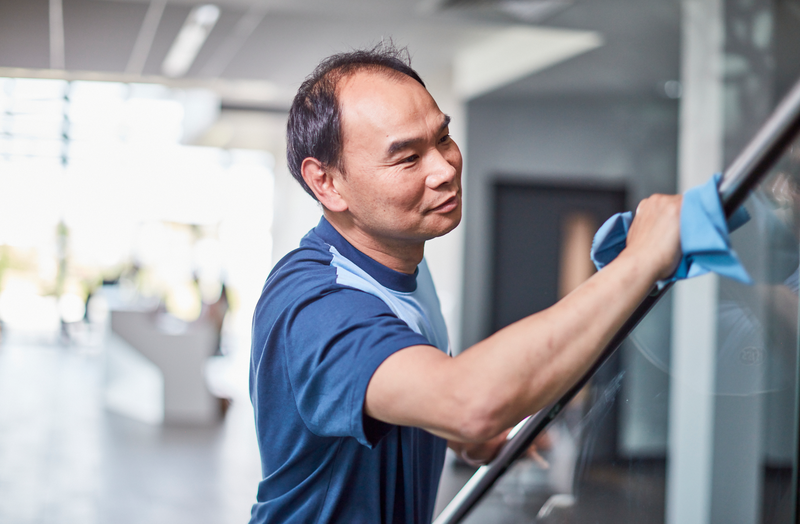“Sustainability has probably become the main priority in cleaning services for us over the last few years,” says Gerry Boland, Global Account Excellence Manager at ISS. “How we can drive the sustainability agenda is something that we talk about in every single customer meeting. But it's not just about what we say—it’s about what we can show our client we have done.”
Gerry sits in the global team and is responsible for managing ISS’s relationship with a global banking client across 14 countries—and like many companies, the organisation is working towards a Net Zero target for carbon emissions by 2050. As a facilities management partner, it’s crucial that ISS plays a role in supporting these goals through the workspace solutions it provides.
At the same time, following the pandemic, organisations are looking for objective methods of measuring cleaning efficacy, as well as ways to prioritise hygiene, remove sources of cross-infection, and make cleaning activities more visible for employees. With these priorities in mind, ISS launched PURE SPACE, a product designed to improve hygiene and safety which was rolled out across countries to support clients—including the global bank.
Crucially, the standardised procedures and processes that are embedded in this facilities services solution have also had benefits for the client in terms of sustainability. A focus area for the team that works with the banking client has been reducing water usage, particularly in previously water-intensive processes like cleaning. “Having used nearly 3.5m litres of water per year with traditional floor cleaning methods, we got that down to 280,000 litres with the new techniques,” explains Gerry.
In fact, introducing the solution to the client's workspaces has resulted in an 89% reduction in water consumption, a 34% reduction in chemicals used, 13% savings in plastic packaging, 12% less cardboard consumed, and 12% of CO2 saved through packaging in cleaning processes.
This has led to a “hugely positive” reaction from the client, Gerry says. “
PURE SPACE is something we brought to them, and they’re absolutely delighted with it.”
